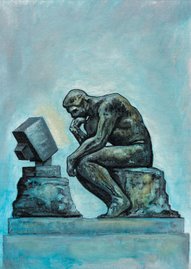Logic – Logic can be defined as the science of correct reasoning. As a science, it employs in an orderly manner certain laws or rules and methods whereby we may derive a valid conclusion from a given set of facts or ideas. Its purpose is to develop a science of reasoning. It clarifies our thinking and helps us to evaluate the reasoning behind the systems of belief and theories that we encounter in life. Logic helps us to understand what our beliefs mean, how to express them clearly, and how they may be supported.
Sometimes the word Logic is used in a loose sense, as in the following statements:
Sociologists understand the logic of events.
The logic of his argument is difficult to criticize.
The logical thing for you to do is go into law.
Socrates is a very logical person.
In our course however, we refer to Logic in a technical sense, namely, as a scientific way of determining the correctness of our thinking.
Logic is about reasoning and reasoning is a kind of thinking. It is a kind of thinking in which we try to solve a problem, make a decision, or determine what is true. It is thinking with a purpose which is to arrive at a conclusion. This process is called inference.
Inference - Inference is the process by which one proposition [conclusion] is reached and affirmed on the basis of one or more other propositions [premises] accepted as the starting point of the process.
Reasoning involves inference. The mind draws a conclusion from a given premise, based on an inferential connection between these statements. Reasoning expresses a logical movement from one statement to another.
The birds are flying south. Winter must be coming.
The lights are out and their car is gone. I suspect they are not home.
Raisins are dried grapes. Prunes are dried plums.
She graduated summa cum laude. She must have studied hard in college.
The cat is standing by her dish meowing. She is probably hungry.
These are some of the symptoms of neurosis: strong guilt feeling, irrational fears, insomnia, and inability to make decisions.

Nuk ka komente:
Posto një koment